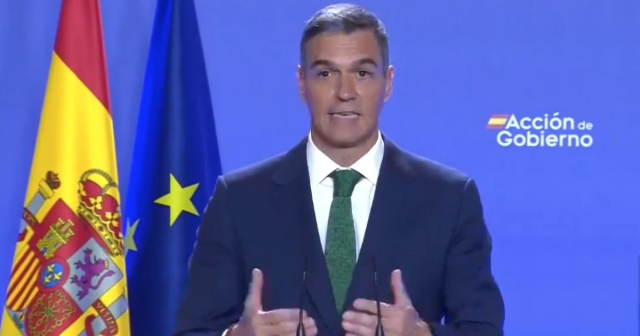Pedro Sánchez, president of the Government of Spain, committed to speeding up the process of recognizing university degrees for foreigners who wish to work in the country, thus facilitating their integration into the Spanish labor market.
"We are going to launch a new labor migration program to facilitate hiring from countries like Mauritania, Gambia, Senegal, Guatemala," Sánchez pointed out, reported EL País on the social network X.
Sánchez also pointed out that these measures respond to the recommendations of expert institutions in migration, which have advocated for greater flexibility in the processes of recognition and hiring of foreigners.
Additionally, he emphasized the need to modify current regulations to make them more efficient and to adapt them to the needs of both individuals and companies that have requested these changes, seeking greater agility in responding to the demands of the labor market.
It also announced that, after a long dialogue with social agents, its government will present a reform of the Foreigners' Regulations to the Council of Ministers next month.
This reform aims to streamline procedures for migrants residing in Spain, eliminating unnecessary bureaucratic processes and reorganizing the figures for residency.
It was also reported that new figures related to employment and family networks will be created, facilitating the integration of migrants into the country.
In the European context, the president emphasized the importance of a shared and responsible migration policy and stated that Spain will demand in Brussels that all EU countries actively engage in the management of migration flows affecting Mediterranean nations.
In this regard, Sánchez announced that he will request the European Commission to advance the implementation of the Migration and Asylum Pact to 2025, instead of 2026, with the aim of activating border control tools and migrant distribution as soon as possible.
It also highlighted the importance of having the support of NGOs and civil associations in the implementation of the new migratory mechanisms.
According to the explanation, these organizations, which work on the front lines, have a deep understanding of the reality on the ground.
"They better than anyone know the reality and will be able to help fine-tune and implement these mechanisms," added Sánchez, reaffirming the government’s commitment to work closely with the third sector to ensure that the reforms effectively respond to the needs of migrants and the affected communities.
Recently, the Illustrious Official College of Physicians of Madrid (ICOMEM) decided to allow the registration of Cuban doctors without the need to present the certificate of no disqualification, a document that is currently not being issued in Cuba.
The ICOMEM made this decision, which represents a crucial advancement for Cuban doctors who wish to practice in Madrid, whose homologation process has been severely impacted by the difficulties in obtaining this document on the island, as reported on their website.
Previously, the health counselor of the Community of Madrid, Fátima Matute, called on the ministries of Education and Health of Spain for a "greater urgency" in the recognition of degrees for Cuban doctors.
During a meeting with representatives of the Cuban Medical Association in Spain, the councilor emphasized that the doctors trained on the island have been fighting for several years for the recognition of their university degrees, which they report has been significantly delayed, according to a report from the Spanish newspaper ConSalud.
What do you think?
COMMENTFiled under:
